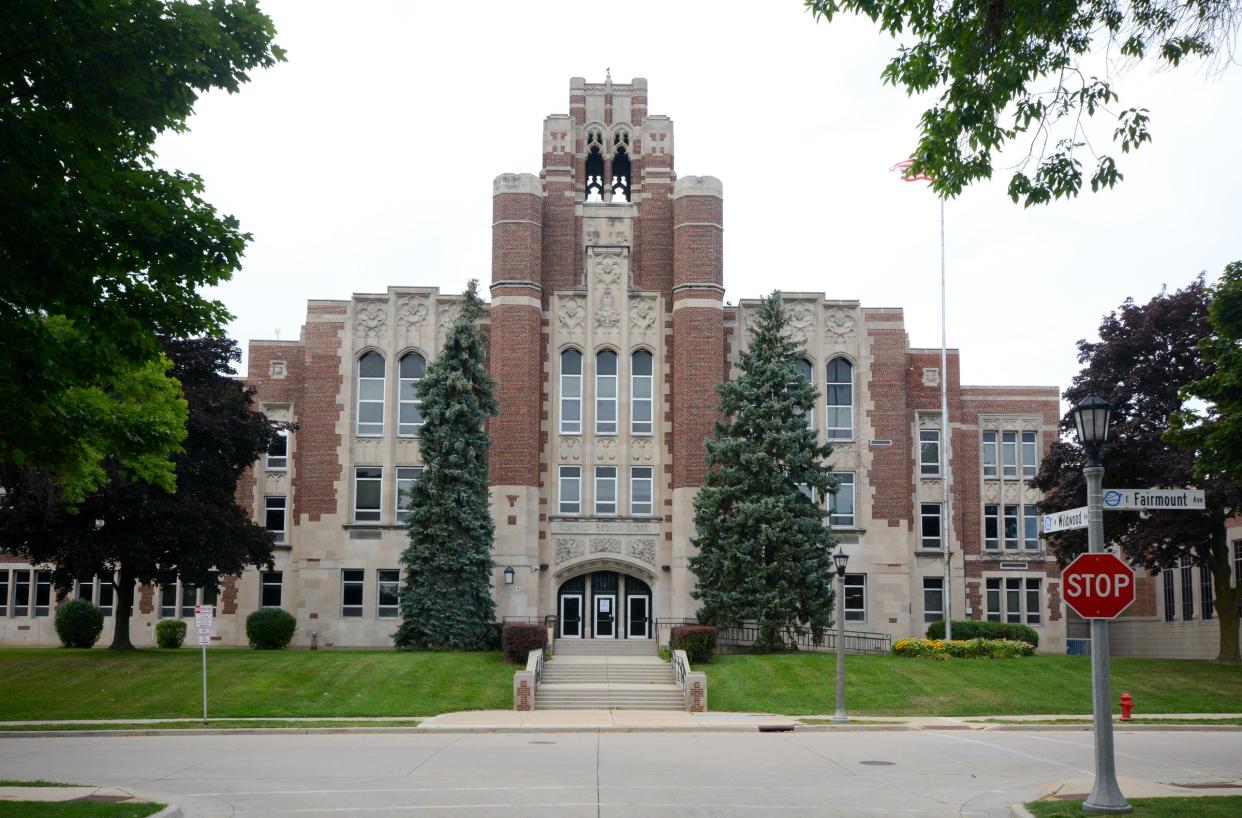Whitefish Bay High School on lookout for potential cases of whooping cough

Whitefish Bay High School is on alert for potential cases of whooping cough.
In letters to the school's parents and staff on April 18, April 22 and April 25, district nurse Allison Heisler said individuals who had been at the school might have been exposed to the contagious illness. The April 25 letter said individuals who had been at the school since April 17 might have been exposed. None of the letters specified how many students or staff had developed whooping cough nor how many students or staff had been exposed.
In an email to a reporter, the district's executive assistant to the district administrator and communications specialist declined to provide any additional details. "Information related to the health of students and staff members is confidential," wrote Julie Pitel.
However, North Shore Health Department health officer Becky Rowland said in an email to a reporter that while the department maintains confidentiality when the number of cases is below five, she confirmed that there are fewer than five cases of pertussis, which is another name for whooping cough, at the school.
Rowland said the department's nurses have followed guidelines from the Centers for Disease Control and Prevention and Wisconsin Department of Health Services and have identified and contacted all close contacts to those cases.
"For broader community awareness, we also shared information with the entire high school, which goes beyond the current guidance. Additionally, we've updated our social media and website with information on pertussis prevention and encourage everyone to get vaccinated. Those experiencing symptoms should consult their primary care provider," Rowland said in her email.
Rowland said the department also recommended that Whitefish Bay High School share pertussis prevention information districtwide "and provided the necessary materials," but said the department has not received an update on that yet.
A reporter's follow-up phone calls and emails to Whitefish Bay School District officials asking about that update were not immediately returned.
"The contact tracing and disease prevention efforts between the Whitefish Bay school nurse and our NSHD nurses have been effective, with no new cases identified since April 25th. We are extremely thankful for this productive and efficient collaboration!," Rowland said in her email.
Here's what to know about whooping cough.
What is whooping cough?
According to the letters, whooping cough is an infection affecting the airways that causes a severe cough lasting for weeks or months, sometimes leading to coughing fits or vomiting. The bacteria is easily spread by coughing or sneezing, the letters noted.
While anyone can get whooping cough, the infection can be "very dangerous for babies and people with certain health conditions that may be made worse with whooping cough."
What action steps do the letters recommend for dealing with whooping cough?
The letter included recommendations from the Centers for Disease Control about how to handle whooping cough.
Those with a cough should stay home from school and activities and make a doctor's appointment as soon as possible to inform their doctor about a possible exposure. Doctors are required to report cases of whooping cough to the local health department, according to the state Department of Health Services. The health department notifies the state epidemiologist.
Health conditions such as asthma might be made worse by whooping cough, the letters said. People in those situations should ask their doctor about the possibility of a course of antibiotics, even if they are not coughing.
The letters also recommend antibiotics to people who live with a pregnant woman or a baby younger than 12 months old, even if the person is not coughing.
If someone is diagnosed with whooping cough by a doctor, the letters recommend notifying the district nurse.
"School officials may request that the individual stay home from school and activities, such as sports or play groups, until the individual has been on appropriate antibiotics for five days to treat whooping cough," the letters said.
If a doctor does not diagnose whooping cough, the letters recommend asking for a doctor's note confirming that diagnosis of no whooping cough and saying the individual can return to school and other activities at any time.
Are vaccinations recommended?
Whooping cough is covered by a common childhood vaccination, as part of the DTaP (diphtheria, tetanus and pertussis) or Tdap (tetanus, diphtheria, and pertussis) shot. DtaP is used for children younger than 7, while Tdap is used for older children and adults, according to the CDC.
More: Dane County resident tests positive for measles, what to know and how to get immunized
The letters from the school recommend making sure families' whooping cough vaccinations are up to date, as protection from the childhood vaccine decreases over time.
Contact your doctor or the North Shore Health Department to find a vaccine provider.
Contact Alec Johnson at (262) 875-9469 or alec.johnson@jrn.com. Follow him on Twitter at@AlecJohnson12.
This article originally appeared on Milwaukee Journal Sentinel: Whitefish Bay High School keeping eye out for whooping cough cases

